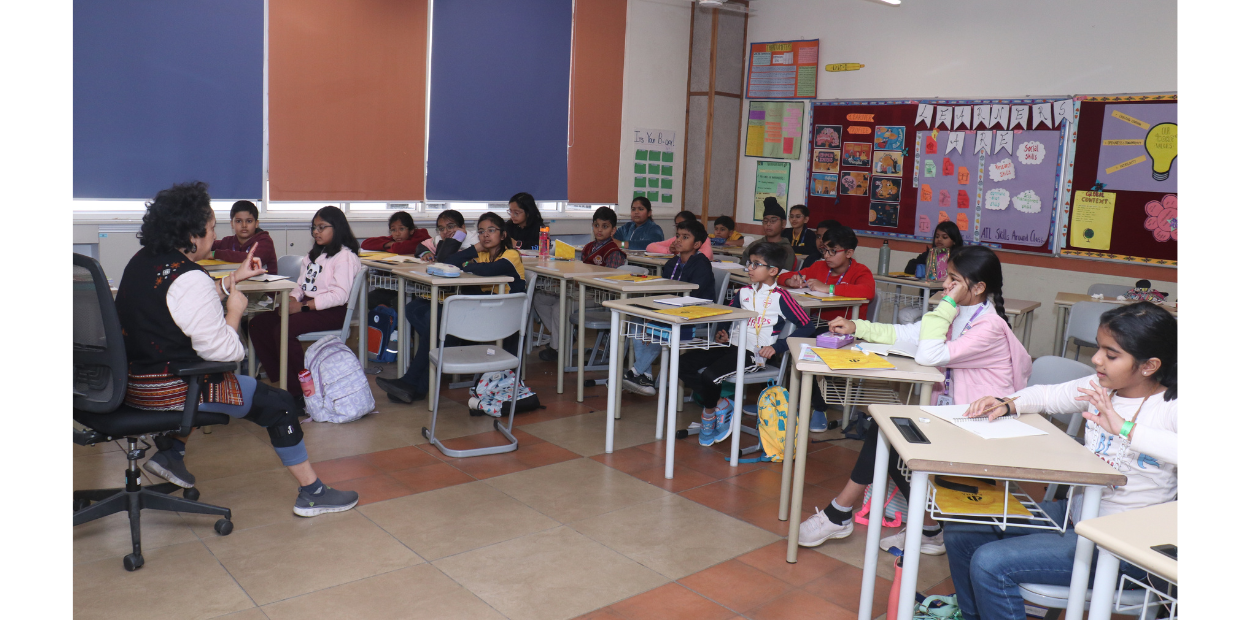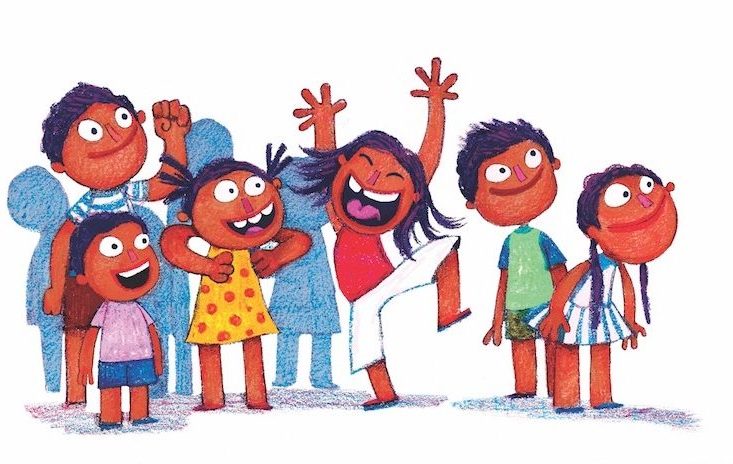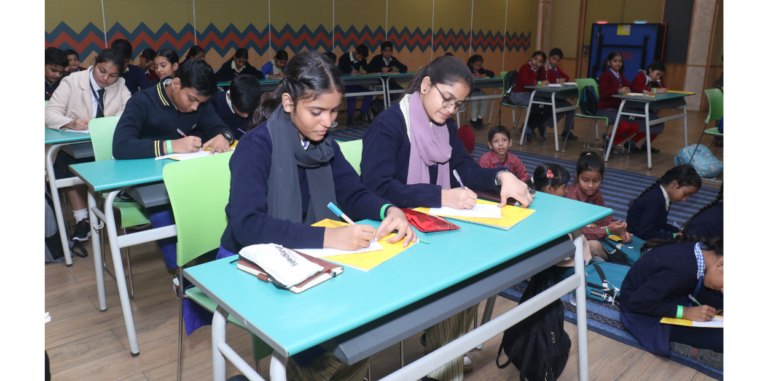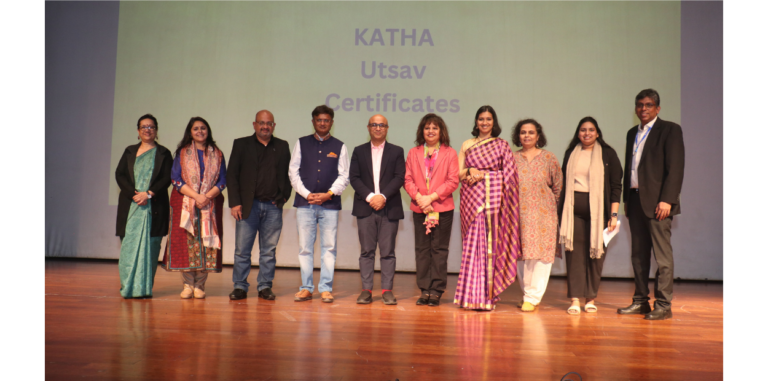The KATHA National Writers’ North Regional Workshop 2024 took place on November 29 and 30 at Shiv Nadar School, Gurugram. This inspiring two-day event brought together 257 young writers, each eager to explore the art of storytelling under the guidance of 7 amazing mentors. With a focus on self-expression, creativity, and collaboration, the workshops created a space where stories came alive.
The mentors conducted five workshops across two days, and children were grouped according to their grades from 4-7 and 8-12. These workshops, infused with energy and creativity, ensured that every participant developed a stronger connection to their craft and a deeper understanding of storytelling.
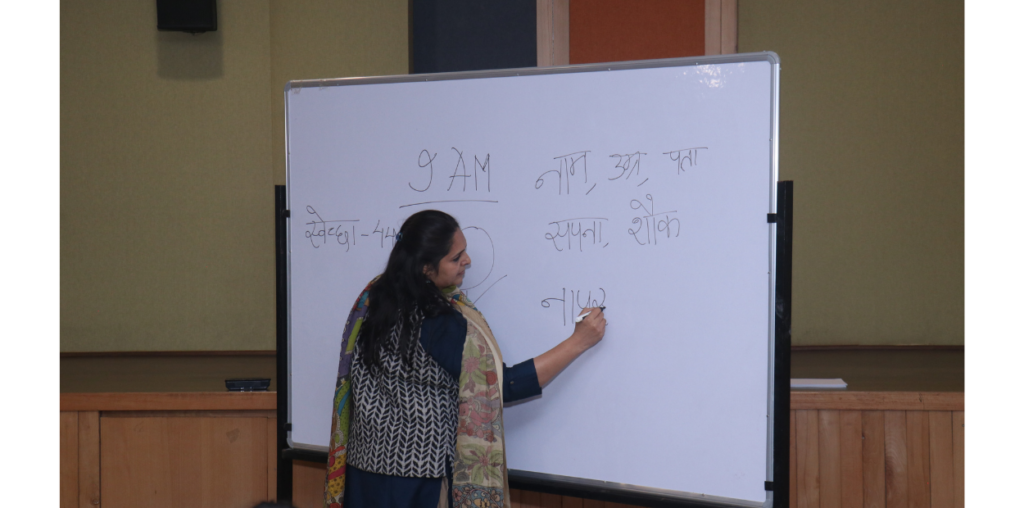
The Journey Over the Destination – Swetcha Pershad
Swetcha opened the day by encouraging children to embrace the journey of writing rather than focusing solely on outcomes. Her message, “Winning and losing is not the goal; it is the experiences that matter,” set the tone for a space of learning and growth.
She conducted a small exercise where children wrote and shared introductions which included their fears, failures, dreams, and dislikes. For many, the activity highlighted a common struggle—confidence in writing but hesitation in public speaking.
To address this, the group played a collaborative game where each child added one line to a shared story, breaking the ice and helping them overcome their fear of speaking in front of others. By the end, children were smiling, laughing, and speaking with confidence, discovering the joy of shared storytelling.
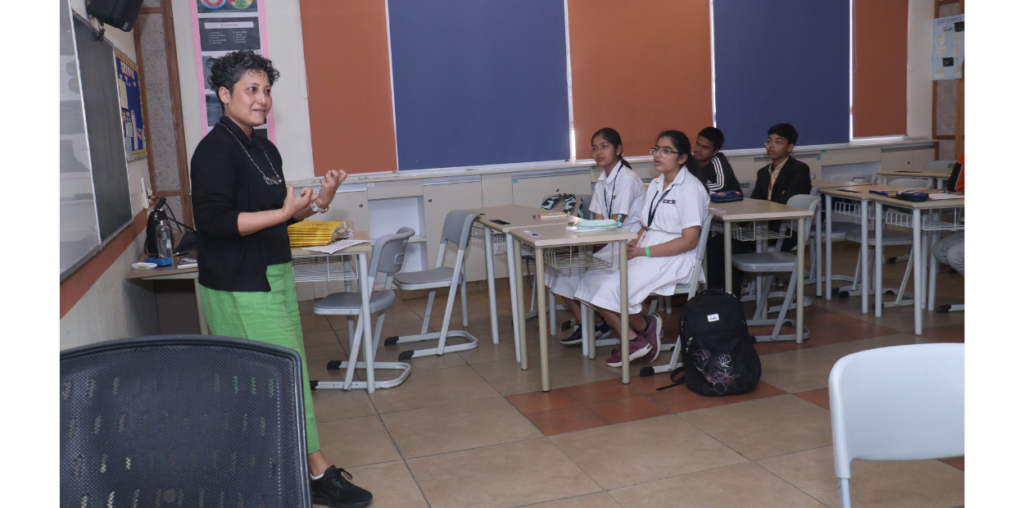
Stories in the Digital Age – Sangeeta Pisharoty
Sangeeta exposed her group to the vast possibilities of digital storytelling. She demonstrated how mediums like podcasts, videos, and social media threads can become tools for creative expression.
The focus was not only on writing but also on carving out a unique voice as an independent storyteller. By encouraging experimentation across genres and media, Sangeeta inspired participants to think beyond traditional storytelling and embrace the digital age.
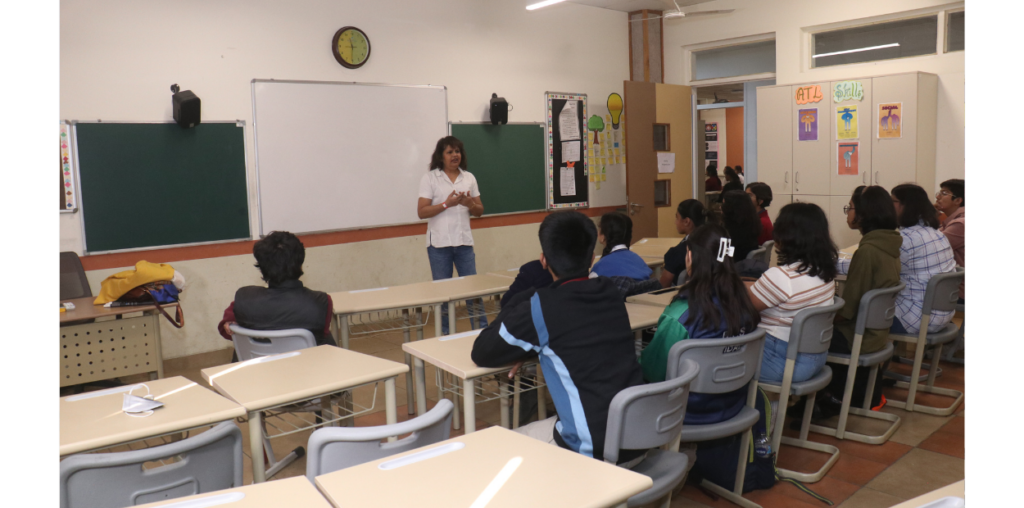
The Craft of Writing – Anupama Jain
Anupama’s session delved into the technical aspects of writing, emphasizing observation, research, and reflection.
Anupama encouraged her group to think like treasure hunters, collecting observations from everyday life to fuel their stories. The children leaned in as she shared tips on crafting relatable characters and vivid settings, reminding them that great writing often comes from stepping away from the desk and into the world.
She spoke about writing as an outlet for emotions, calling the paper “a space to take out all your grudges.” Children were inspired to channel their feelings into their stories, making their writing deeply personal and unique.
Her advice on failure was particularly impactful, “Artists face more failure than success, but it is all part of the process.” This reminder that setbacks are stepping stones resonated with the budding writers.
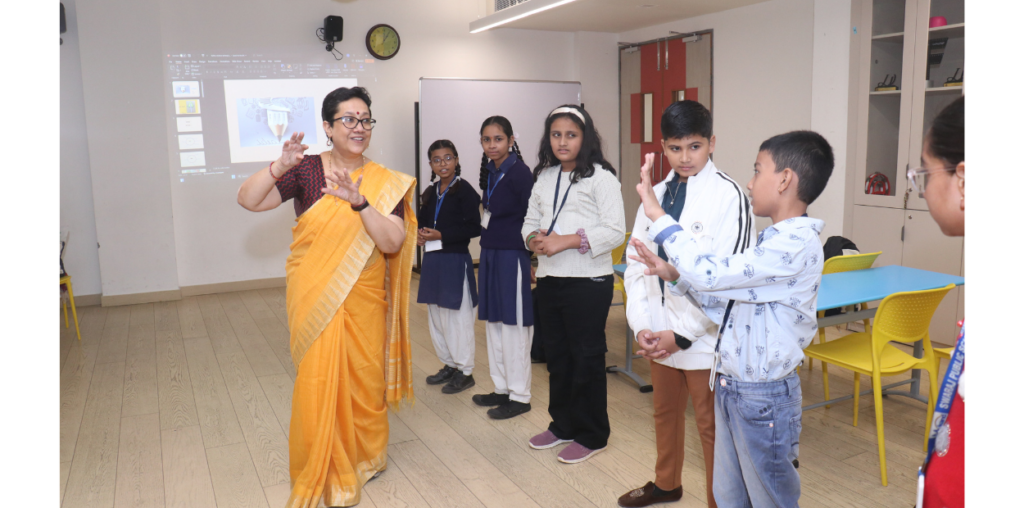
Storytelling Through Senses and Drama – Usha Chhabra
Usha’s workshop was conducted in Hindi as she guided children to explore storytelling through the five senses, making their narratives vivid and relatable. She transformed her classroom into a mini theatre!
A drama exercise encouraged participants to tap into their emotions as they reenacted scenes like visiting a bustling bazaar or buying jalebis. Laughter filled the room as children energetically enacted the chaos of a jalebi shop, calling out phrases like, “Aiye aiye” (come come) “Dhakka mat do” (do not push), and “Line baniye, sabko milega!” (form a line line, everyone will receive!)
These lively performances were followed by reflective writing, where participants transformed their personal experiences into stories. The workshop emphasized how individual perspectives bring uniqueness to storytelling, helping children understand how to make their stories truly their own.
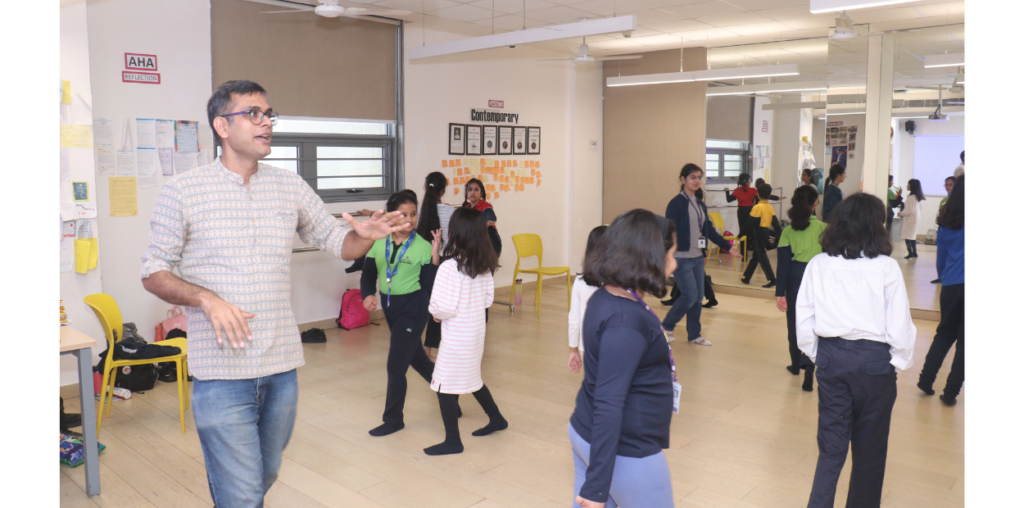
Theory Through Theatre – Kapil Pandey
Kapil Pandey transformed the classroom into an open, playful space where creativity flowed freely. He introduced a ‘free writing’ exercise where participants circled striking words from their drafts to create new stories.
One highlight was an enactment of the theoretical concept of “death of the author.” Children worked in groups, creating frozen formations that others tried to interpret. As corrections flew back and forth, Kapil explained that meaning does not always refer to the creator’s intention; stories take on lives of their own. This hands-on exercise brought complex ideas to life, showing children how interpretation enriches storytelling.
A Collaborative and Supportive Space
Throughout the day, the workshops created a collaborative atmosphere where children shared their writings, discussed ideas, and supported one another. Mentors encouraged the participants to explore their identities as writers, reflect on their experiences, and experiment with new approaches.
From self-awareness activities to lively performances and creative writing exercises, Day 1 was a celebration of storytelling in all its forms. It wasn’t just about crafting stories but about finding confidence, joy, and a personal voice in the process.
As the children left for the day, they carried with them not just drafts of their stories, but a deeper understanding of themselves as writers and storytellers. It was not just about learning to write but about learning to see the world—and themselves—differently.

